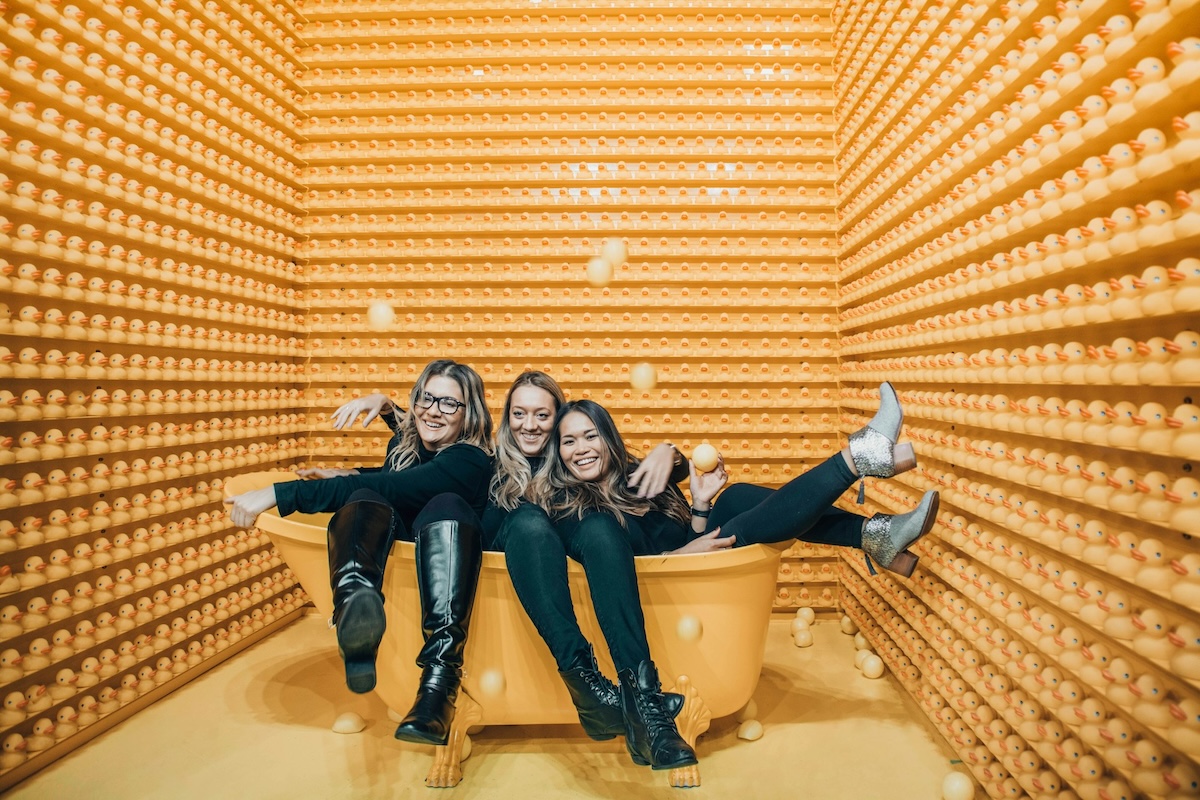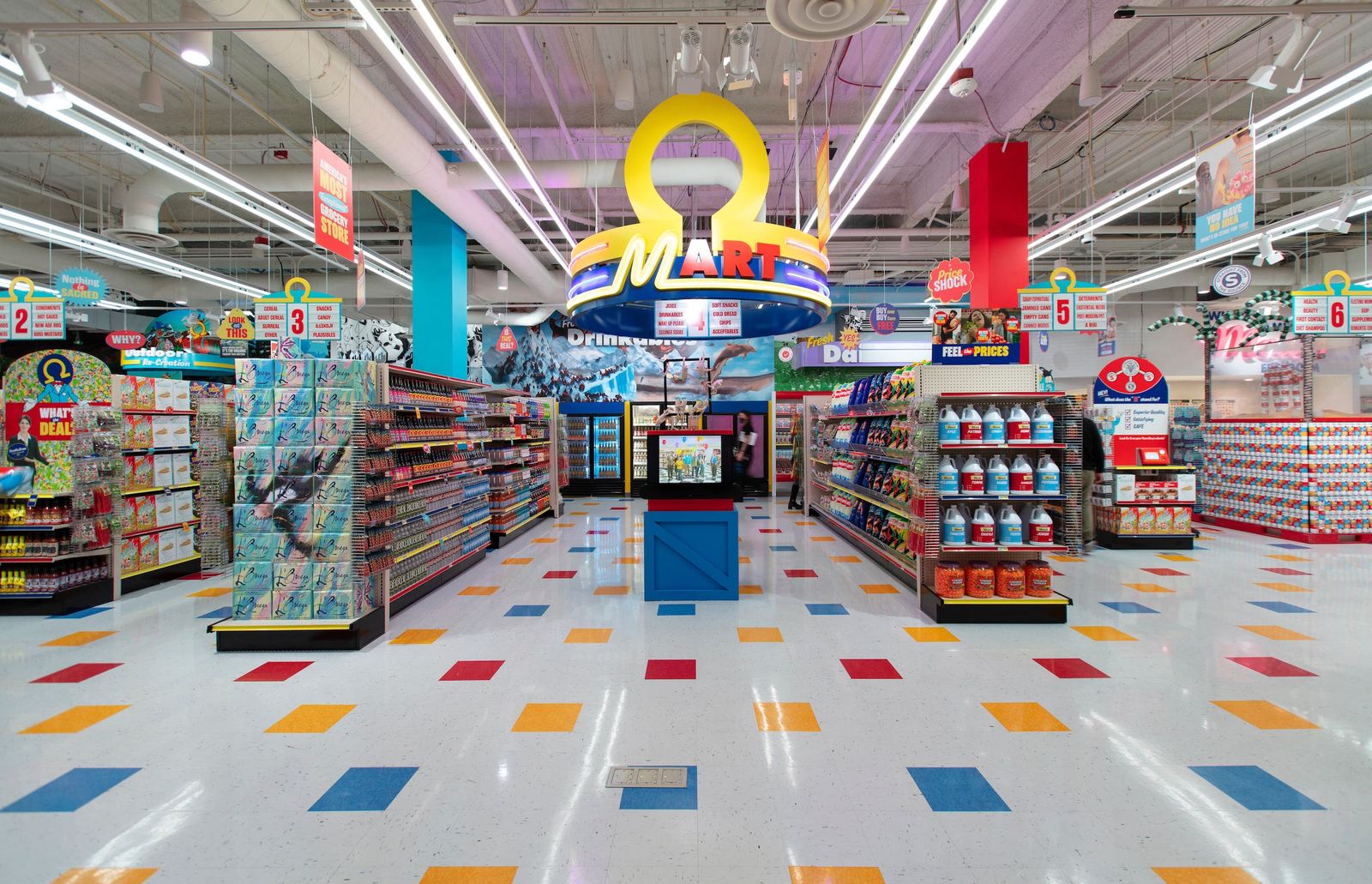Skift Take
From unbelievable event technology to a revitalized focus on personalized learning environments and attendees’ work/life balance, the future of event planning in 2020 looks bright. In this post, we discuss the digital world’s influence on attendees’ experiences, the next level of interactive learning, and forecasts for meeting and event technology.


We are at the tail end of 2018, staring into 2019 and all the events it holds for us in the meeting and event industry. With the quick succession trends and technologies keep today, it isn’t enough to look one year ahead; rather, modern meeting and event planners should keep their eyes on innovation coming over the horizon for the upcoming years within long-term planning range.
Event planners must be creative, organized, and thorough, yes, but where they really add value for their clients is their ability to build on information to predict needs in the future. Since meetings and events often take months to plan—perhaps even years—planners must live in the future while they work out exactly what the expectations will be at that time. That is why it is vital to begin implementing trends now, being an early adopter, and priming your eye to curate the trends that will appeal to your target demographics.
Data-Driven Trends to Prioritize Event Resources
Being trendy for the sake of it does not usually work out favorably. Instead of using every new trick, tool, or resource you can catch, use your data to tell you where to invest your time and money.
Every industry has its own priorities and preferences, so start there. Obviously, technology-centered industries will be more excited to use brand new tech tools at a meeting, and they will be more comfortable handling them as well. Use your demographic data from previous events, and post-event surveys if possible, to see how they want to see your event evolve.
Future Meeting Environments to Increase Event Innovation
We have seen a rise in creative and offbeat event venues, and we predict this is one of the event planning trends that will continue to grow. With a focus on creating memorable, interactive experiences, meetings and events that choose venues beyond the standard will drive attendee engagement. In coming years, unconventional meeting and event venues will pique interest and create unforgettable memories, building your event’s story in an organic way. Taking on the task of transforming an unexpected space will set a foundation of innovation and add loads of value to your event.
- Bleisure-Friendly
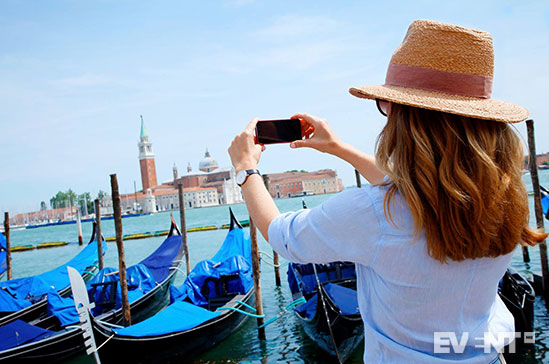

By adding leisure time before or after a business trip meeting or event, your attendees get to enjoy a better work/life balance—a concern that has slowly developed over the past few years. In 2020, we predict that bleisure travel will be even more common.
Since many of your attendees will be using their spare time to explore the event destination, this means choosing a location according to some different factors. Consider the surrounding area and what it offers in the way of adventures, nightlife, and culture.
- Sustainability-Focused
A focus on sustainable practices isn’t going anywhere in the coming years, but simply ditching plastic straws isn’t going to cut it anymore. Attendees will be looking for venues with LEED certifications, energy efficiency, local food initiatives, and innovative answers to minimizing their carbon footprints.
- Artistic
Since social media is a visual platform, more event professionals are partnering with artistic venues for built-in Instagram-worthy backdrops. From empty warehouses with event-specific graffiti to museums dedicated to ice cream, meeting and event venues are going to get a dose of off-beat creativity.
- Innovative Seating
Event planners are already embracing meeting environments that consider attendee experience first, and this will continue to develop into new and exciting meeting space layouts. Everything from the choice of seating to how attendees are arranged affects the mood and tone of the event; event professionals will carefully consider these factors when planning layouts, optimizing for brainstorming, networking, teamwork, and creativity.
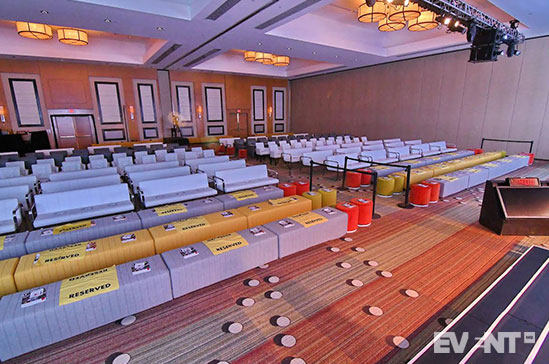

Photo by: CORT Events
Interactive Live Event Experiences for More Meaningful Memories
It is safe to say that interactive event elements are not fads, but are only going to become more personalized and meaningful. Live event experiences bring extra vigor to meetings and events, which is exactly what wakes up attendees and gets them engaged. No longer is the dry speaker at a podium an option; now attendees expect the content delivery to be exciting, personal, and innovative.
- Personalized Content
Since everyone retains information differently, event professionals will start differentiating for content delivery, focus, and scaffolding. The future of professional education and entertainment will rely on data to pinpoint how to best reach each attendee, including what content will be in demand. Technology will facilitate this connection, ensuring that every speaker, session, and demonstration is offering valuable content.
- Amplified Gamification
Applying the elements of games to encourage engagement is all the rage right now, and in 2020 event professionals will ramp it up in even bigger ways.
This trend takes the appeal of competition to learning and networking. This can build a sense of community as well as address the “forgetting curve”, how information is forgotten over time when there is no attempt to strengthen it. In the future, events will offer personalized gaming opportunities that engage attendees in winning prizes, badges, and points. Event technology will allow attendees to keep track of their place in the leaderboard, share their experience with other attendees, and customize their gaming.
- VR Content
Virtual reality used to be out of most event budgets, but we are seeing more accessible VR experiences become available. In the future, VR will be more standard during live events to engage everyone.
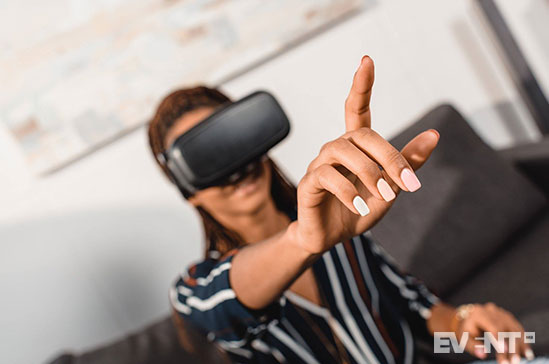

What event professionals love about VR is their ability to make their event anything they can imagine. From enhanced gamification to fully interactive surveys, VR is how we will engage attendees through all their senses.
Global Attendance to Increase Event Reach
With live streaming, remote working, and international mindfulness hotter now than ever, event professionals will be thinking bigger as far as their global reach.
More connection through technology has emphasized our part in the big picture, which will force us to consider how we can open up our events to attendees around the world. While previous livestreaming experiences were treated as an afterthought, event planners are beginning to value the remote attendee’s engagement and feedback as much as those who attended in person. VR technology will help bring the excitement of the event to the livestream experience, and chatbots will ensure remote attendees are engaged.
Event professionals will need to be versed in worldwide conversations since their attendees can now come from anywhere to interact with their sponsors. Cultural sensitivities, current global concerns, and translation platforms will become more vital to event planners as they navigate this widespread reach.
Customized Learning Opportunities for Better Event Engagement
As the expectations for customized experiences increases, event professionals will use more tech tools to facilitate learning opportunities unique to each attendee. Technology will allow us to analyze each attendee’s needs for educational material, guide them to the best information, and ensure they are engaged with the material.
- Personalized Schedules and Messages
By using data to identify attendees’ interests, knowledge deficits, and career responsibilities, event professionals will be able to create an event experience tailored to their professional needs. From targeted ads and push notifications, to building a specialized meeting agenda, each attendee will have a unique experience.
In the coming years, attendees will be interacting with event technology to ensure they only see relevant, engaging information. They will see targeted ads in the event’s app for speakers they will have interest in, and they will receive a meeting agenda created with their needs in mind. Advanced algorithms will seek out attendees who need specific training and present them with their options. According to their location, they will see push notifications informing them of the closest event experiences that would interest them so they never miss an opportunity for added education.
Experience-Enhancing AI for Better Event Interactions
Obviously, incorporating technology into events isn’t anything new, but how guests expect to interact with it is. Attendees will increasingly expect AI to enhance their experience by solving their problems. For any obstacle you have, from long lines at check-in stations to lags in speaker translation, there is an answer in the right kind of technology. They will expect their needs to be met with the help of some high-tech strategic event planning that smoothly connects them to your content.
- Chatbots
Chatbots are increasingly showing up as an event planner’s best friend, and they will become even more integrated into the framework of event planning and execution. They can be programmed for everything from following up on leads to answering customer service inquiries, with an increasing ability to detect attendees’ emotions and tone for better responses. We predict chatbots will become even more integrated into event experiences, answering attendees’ questions at any point of their event experience with sophisticated tact.
- Security
Soon AI will make check-in a breeze. Incorporating facial recognition will ensure attendees and staff are appointed for while shortening lines. Advanced AI software will identify any attendee risks you need to be aware of, helping you keep your focus where it belongs. As AI becomes more nuanced, it can interact with attendees, security teams, and planners in ways that work for more efficient communication.
- Real-Time Event Analysis
In the world of event planning, quickly figuring out what is working and what is not is key. While we currently use social media, surveys, and ratings to see what is resonating with our attendees, the future will bring us even faster and more useful ways to analyze and disseminate this important data.
Live polls will let us instantly see if a speaker is sparking interest, allowing us to adjust the event for what attendees are responding to. Then, you can filter and share any relevant findings through digital signage, keeping the flow of the event headed toward your highest-rated content.
The New Age of Event Planners and Streamlined Operations
Just as our attendees are striving toward a better work/life balance, so will the rising generation of event professionals. As what is considered the most stressful career, event planners will focus on integrating technology and tools to work more efficiently and effectively, ditching some of that stress in favor of streamlined operations.
It’s good to keep up with current events, but it’s even better to prepare for how they will affect you in the future. Luck favors the prepared, especially the prepared event planner that knows what’s happening in their industry. The biggest trends affecting the event management industry, including new technologies and market shifts will affect how you conduct your events, how you spend your money and how many events you will host.
Event planners need to have strong communication skills, problem solving abilities and an interest in working with others. The combination of experiential learning and specific course work in high school and college can help you prepare for this career. In the event planning profession, there is no substitute for real-world experience.
- Integrating Technology Tools
Technology is evolving to allow for project management tools that account for multiple collaborators, sharing the tasks efficiently across the team. This will not only take the pressure off of individual planners, but also result in better communication, idea sharing, and implementation.
The future of event execution technology will allow you to collect all the data you need while staying completely unobtrusive to your event experience. Smart floors and mats will allow you to track attendance, popular sponsor booths, high-traffic areas, and more with complete stealth. The apps you use to keep in contact with your event planning team will become smarter, more intuitive, and more efficient. With virtual check-ins and chatbots helping take the stress off your managerial functions, you will be free to ensure your attendees are engaged.
Event professionals will continue to employ management tools that display consolidated key actionable data. These advanced systems connect data from marketing platforms, email campaigns, registration systems, attendance tracking and post-event surveys to build a picture of the event effectiveness. While these event tools are currently available, they will become more important as event professionals learn how intrinsic they are to building a picture of event effectiveness and relating it across the portfolio of events for an organization.
In Conclusion
We can expect to see these trends hit events everywhere in the coming years. As attendees become even more globally aware, expectations for engaging, personalized events will rise. With event technology racing ahead, planners will be able to give attendees experiences that are valuable and memorable, suited to their needs, interests, and preferences.
While it is impossible to definitively forecast in this shifting industry of meetings and events, making attendees’ experiences more thoughtful will never go out of style. Therefore, event planning in 2020 will be keenly focused on how attendees experience each facet of the process, from marketing and design to execution.




